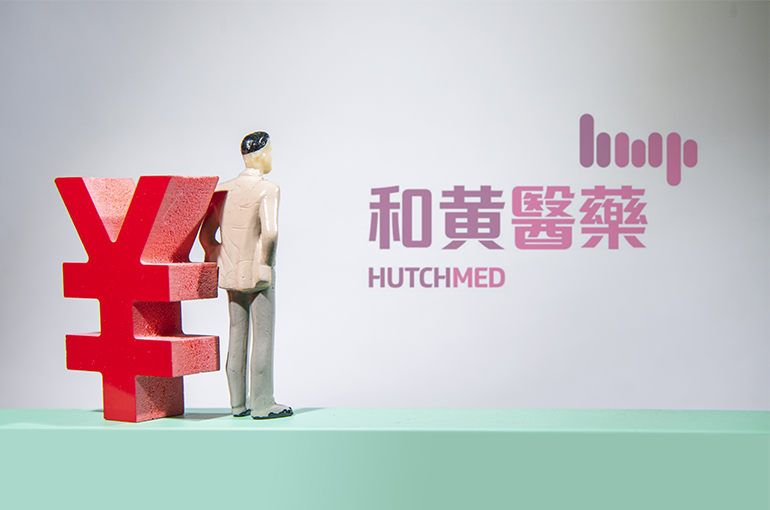 China's Hutchmed Falls After First-Half Profit Plunges Despite Strong US Sales of New Cancer Drug
China's Hutchmed Falls After First-Half Profit Plunges Despite Strong US Sales of New Cancer Drug(Yicai) Aug. 1 -- Shares of Hutchmed China dropped after the innovative pharmaceutical firm said profit tumbled 85 percent in the first half of this year due to high income from its business with Japan's Takeda Pharmaceutical a year earlier and despite the strong performance of its new cancer treatment Fruquintinib in the US.
Hutchmed [HKG: 0013] fell 4.3 percent to HKD28.95 (USD3.71) a share as of 11.50 a.m. in Hong Kong today, after earlier dropping by as much as 5.1 percent.
Net profit was USD25.8 million in the six months ended June 30, the Hong Kong-based firm said in an earnings report released yesterday. Revenue plunged 43 percent to USD306 million from a year earlier, with the upfront payment and research and development service income from Takeda shrinking to USD33.8 million from USD258.7 million, it added.
Hutchmed's overall oncology business sales surged 140 percent to USD243.3 million, it noted. Sales of the metastatic colorectal cancer treatment Fruquintinib reached USD13.1 billion in the US, while that in the Chinese market totaled USD61 million.
Hutchmed had a strong performance in the first half of the year, with successful collaboration with Takeda and continued revenue growth in the US, noted Dan Eldar, non-executive chairman of the company. Income will likely grow in several other countries in the coming months, he added.
Hutchmed reiterated its annual revenue target from the oncology and immunology business of between USD300 million and USD400 million. It mainly attributed the expected performance growth to the success of its innovative drugs in overseas markets, especially Fruquintinib's strong US sales.
Fruquintinib got China approval in September 2018 and was included in the National Reimbursement Drug List in January 2020. Hutchmed signed a licensing deal with Takeda to market the drug outside China in January last year.
On June 23, Hutchmed announced that Fruquintinib had been approved by the European Commission, becoming the first Chinese original drug developed in Shanghai to enter the European and US markets after first getting the latter's approval last November.
Editor: Martin Kadiev